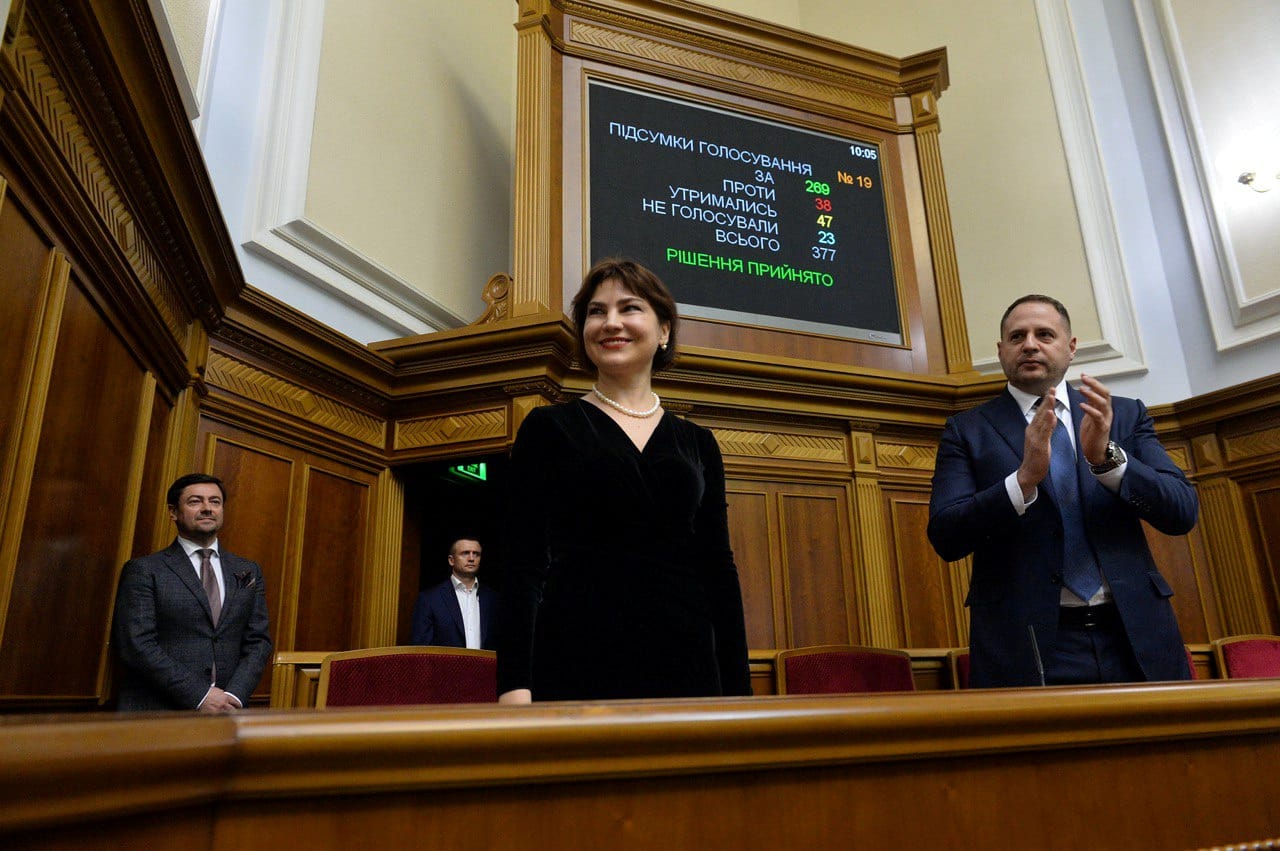Ukraine’s top prosecutor said on Friday investigations into Ukrainian energy company Burisma Holdings Ltd, a matter closely tied to a scandal that led to former U.S. President Donald Trump’s first impeachment, have been closed with no plans to reopen them.
Ukrainian prosecutors in recent years had looked into the actions of Burisma, a company on whose board U.S. President Joe Biden’s son Hunter had served from 2014 to 2019, and its founder Mykola Zlochevsky.
“Everything that prosecutors could do, they have done,” Prosecutor General Iryna Venediktova said in an interview with Reuters by video link from Kyiv. “This is why I don’t see any possibilities (or) necessity to come back to these cases.”
Venediktova also said U.S. authorities had made no requests of her office since Biden took office last month.
The U.S. House of Representatives impeached Trump in December 2019 on charges of abuse of power and obstruction of Congress over his request in a July 2019 phone call to Ukraine’s president, Volodymyr Zelenskiy, for an investigation into Biden and his son Hunter. The U.S. Senate voted in February 2020 to keep Trump in office.
Trump made unsubstantiated corruption allegations against both Bidens. U.S. Democrats accused Trump, a Republican, of soliciting foreign interference in an American election by trying to get a vulnerable ally to smear a domestic political rival, using American aid as leverage. Biden defeated Trump in the November U.S. election.
As vice president under President Barack Obama, Biden oversaw U.S. policy toward Ukraine and sought the removal of the country’s top prosecutor at the time, who the United States and Western European countries had viewed as corrupt or ineffective. Trump and his allies made unsubstantiated claims that Biden did so because the prosecutor had been looking into Burisma while his son served on the board.
Zlochevsky, a former Ukraine ecology minister, is now living abroad.
One Burisma probe had related to suspected tax violations. Burisma said in 2017 investigations into the company and Zlochevsky had been closed after it paid an additional 180 million hryvnias ($6.46 million) in taxes.
NEW APPROACH
Venediktova, in her post for just under a year, said she wants to take a different approach in her job than predecessors she described as being “too political”.
Asked about Ukraine’s fight against corruption, Venediktova dismissed concerns that the independence of the national anti-corruption bureau, known as NABU, had been undermined after the government drafted new legislation on its status that the bureau said would harm its ability to fight high-level graft.
“NABU is now an independent body and will be an independent body in future,” Venediktova said.
Corruption has been a longstanding issue for Ukraine, and any threat to the independence of NABU, set up with the backing of Western donors, could further derail the flow of foreign aid at a time when its economy has been hammered by lockdowns related to the COVID-19 pandemic.
The International Monetary Fund has told Ukraine it needs to adopt more reforms to unlock further funds from its $5 billion IMF programme.
Venediktova also said she is hopeful that legal cases surrounding PrivatBank would come to a conclusion before the end of the year. The central bank declared PrivatBank insolvent in 2016 and said its poor lending practices blew a $5.5 billion hole in its finances before it was taken into state hands. The lender’s former owners dispute this and have fought to reverse the nationalisation.
($1 = 27.8492 hryvnias)
(Reporting by Karin Strohecker in London and Matthias Williams in Kyiv; Additional reporting by Mark Hosenball in Washington; Editing by Will Dunham)
























